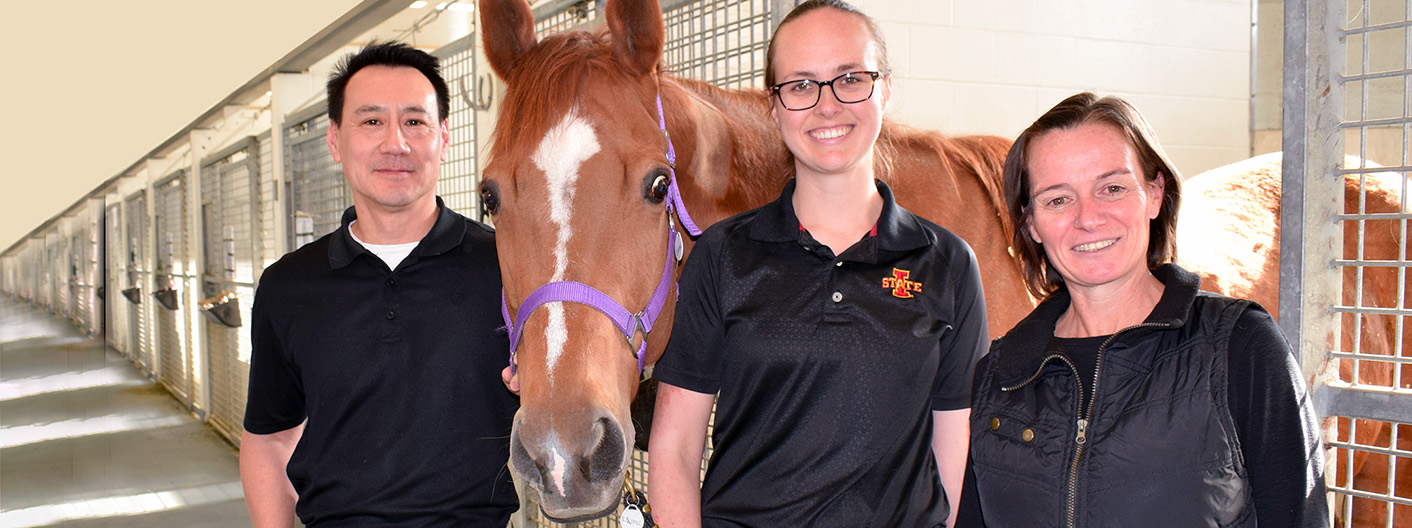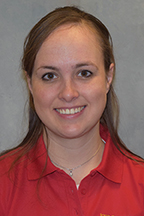Iowa State University’s Equine Internal Medicine Service is here for you and your horse.
Together, we diagnose and treat horses with a wide range of medical conditions, including endocrinopathies such as Pituitary Pars Intermedia Dysfunction (PPID) and Equine Metabolic Syndrome (EMS), as well as respiratory, gastrointestinal, renal, liver, and muscle diseases. When needed, we collaborate with board-certified specialists to address more complex cases involving cardiac disease, dermatologic issues, or allergies.
Owners often seek our expertise when their horse experiences issues such as laminitis, weight loss or gain, coughing, decreased appetite, signs of colic, poor performance not related to the skeleton, abnormal urination, fever, neurological concerns affecting gait, and more.
Our team also treats foals in our neonatal intensive care unit, for problems ranging from failure of passive transfer, sepsis, dysmaturity and musculoskeletal or neurological concerns.










